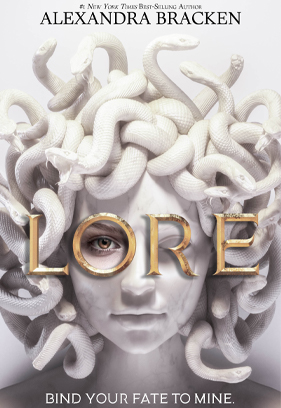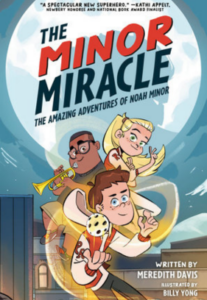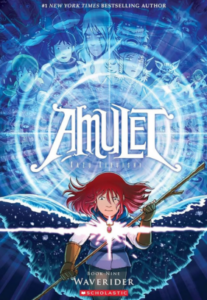The Agon has begun once again.
If you’re an average Joe on the streets of New York City, where the deadly contest is secretly playing out this year, you wouldn’t likely know anything about it. Or the havoc it causes. Hey, people die and things blow up all the time in a city packed with millions of souls. But 17-year-old Melora “Lore” Perseous—the last living descendant of the Greek hero Perseus—knows all about the Agon and what it means.
The Agon has taken place in cities around the world for thousands of years. It began when the god king Zeus created it as punishment for nine other Greek gods and their rebellion. Every seven years, those gods must become mortal for a short period and be hunted by the human descendants of ancient bloodlines.
Why would those human descendants of long-ago heroes participate? Well, if you kill a god, you gain his or her power and immortality. And on top of that, the new god’s whole family reaps the benefits of their deity’s powers, which they can use to build family-owned business empires. Hey, a little bloody murder, and everybody’s happy, right?
But of course, Lore knows that’s a horrible lie. The Agon is a brutal and bloody travesty that resulted in the murder of her entire family, even though her parents were trying to stay far away from it. In the years since then, Lore has stayed as far away as possible. She’s had no contact with any of the different bloodlines and houses. And other than participating in a few low-key fightclub tourneys—a byproduct of the finely honed fighting skills she learned as a girl—she’s stayed nearly invisible.
The key word there, however, is nearly. Because as the Agon begins, two completely unexpected things happen.
First, Lore is contacted briefly by a childhood friend named Castor, who seems to be seeking her aid for something. But he disappears before Lore can find out what he needed. What’s particularly shocking about that is the fact that Lore was certain that Castor was dead! Then something even more shocking happens: The goddess Athena shows up on Lore’s doorstep, bloody and near death.
As Lore does her best to patch a grievously wounded diety back together, she still can’t help but want to run away as fast as she can. She hates everything about the gods, new and old, and all the houses of human descendants. She’s done. She’s out. And she doesn’t have any desire to get dragged back in.
However, it’s then that the weakened goddess offers Lore a deal. If Lore will help her and find a way to heal her, Athena will bind her own fate to Lore’s. For the next eight days, until the Agon is over, Lore will have the strength and power of an original Greek goddess at her back. Together, the two of them might just put an end to the horrendous Agon.
But Athena promises even more: She personally will kill the powerful new god called Wrath, the person who murdered Lore’s parents and sisters.
Lore has a chance at revenge, something she could have never hoped for. She thought she was done with it all. But something still boils and burns down deep within her. And with the recital of a short oath, Lore, the girl who was out, is back in!











